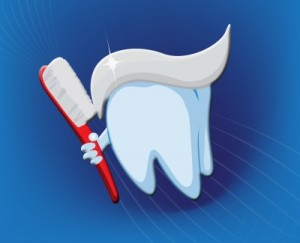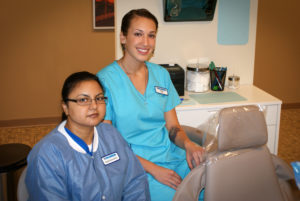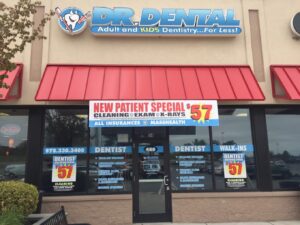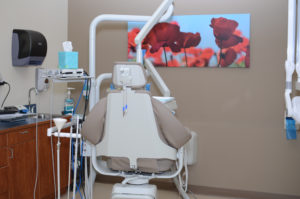Why dentures are necessary
When natural teeth have been lost or removed, leaving the gap unfilled can lead to problems. Eating and speaking may be impaired. The teeth on either side of the gap can grow into the space at an angle and damage the remaining natural teeth. Partial dentures can keep the teeth aligned naturally and correctly.
When dental dentures may be fitted
 Dentures can usually be fitted immediately after the natural teeth have been removed. The benefit of immediate dentures is you do not have to go without having any teeth. The down side of an immediate denture is that gums and bones can shrink over time, especially during the first six months after the natural teeth have been removed. In this case, your dentist may need to realign, adjust or even replace your newly fitted dental dentures. In some cases, the dentist may prefer that the gums are allowed to heal before fitting partial dentures or complete dentures. While this is really inconvenient and can take several months, it may result in a much better fit.
Dentures can usually be fitted immediately after the natural teeth have been removed. The benefit of immediate dentures is you do not have to go without having any teeth. The down side of an immediate denture is that gums and bones can shrink over time, especially during the first six months after the natural teeth have been removed. In this case, your dentist may need to realign, adjust or even replace your newly fitted dental dentures. In some cases, the dentist may prefer that the gums are allowed to heal before fitting partial dentures or complete dentures. While this is really inconvenient and can take several months, it may result in a much better fit.
Getting used to a new denture
- Eating with new partial or complete dentures will take some practice. Begin with soft foods that have been cut into small pieces. Chewing slowly, use both sides of the mouth to make sure the denture remains in place. As you develop confidence, add other foods until you are back to your regular diet.
- Speaking may also take some practice. Read out loud and repeat difficult words. Your new teeth may slip when you cough, smile or laugh. This can be fixed by biting down gently and swallowing.
- For the first few days after your new complete or partial dentures have been fitted, your dentist may ask you to wear them continuously, even when you are asleep. Once your mouth becomes accustomed to them, you will be able to take them off before going to bed. This will give your gums a chance to rest. Storing your new teeth in water will prevent them from warping.











